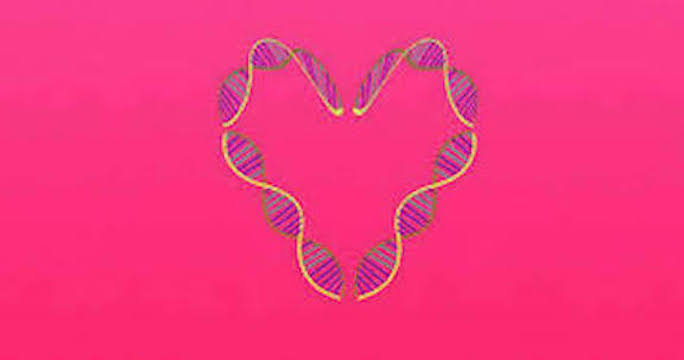
Famous Geneticist’s Dating App Would Match Users Based on DNA
He thinks it could lead to the elimination of all genetic diseases.
Harvard geneticist George Church’s long list of lofty — but very possibly attainable — goals for the future of DNA research includes resurrecting the woolly mammoth, reversing human aging, and perhaps even helping you gain superhuman powers.
Also on his professional to-do list? Create a dating app that matches users based on their likelihood of not passing genetic diseases along to their offspring.
To understand how that might work, you need to know a bit about genetic inheritance, and specifically how genes can be dominant or recessive.
As you might expect from the nomenclature, dominant genes take precedence over recessive ones — meaning that if two people have a baby, and one person has a dominant gene for a trait and the other has a recessive gene for it, the dominant gene is more likely to show up in their offspring.
A simplified example: the gene for brown eye color is dominant, while the one for blue is recessive, so if a brown-eyed person and a blue-eyed person have a child, it’ll likely have brown eyes.
Some genetic diseases and conditions, such as sickle cell anemia, are caused by recessive genes. The average person carries an estimated 20 of those recessive genes, but most of the time, they don’t even know it because they also inherited a “healthy” dominant gene from their parents that overshadows the recessive one.
But if a carrier of a disease-causing recessive gene ends up having a baby with someone who also carries the same recessive gene, their offspring has a 25 percent chance of actually suffering from the disease — and that’s the situation Church hopes to avoid with his in-development DNA dating app, according to a new interview with CBS’s “60 Minutes.”
“You wouldn’t find out who you’re not compatible with,” he told correspondent Scott Pelley. “You’ll just find out who you are compatible with.”
“You’re suggesting that if everyone has their genome sequenced and the correct matches are made, that all of these diseases could be eliminated?” correspondent Scott Pelley asked.
“Right,” Church replied.
Of course, we’re a long way from a world in which everyone has their genome sequenced.
And we’re even further from one in which everyone would be willing to let their genomic data help determine who they start a family with — after all, two carriers of a recessive gene for a disease can still have a healthy child, and no doubt some partners would be willing to take the risk in the name of love.
Still, some people already automatically swipe left on potential mates for a litany of — sometimes bizarre — reasons. And if we could add “incompatible DNA” to the general list of dating dealbreakers, the end result could be a healthier human race.
